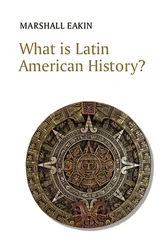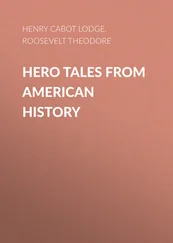Salvation on Lake Champlain
Even while Washington burned and Baltimore fell under attack, a grim band of 10,000 British veterans of the Napoleonic wars was advancing into the United States from Montreal. On land, nothing more than an inferior American force stood between them and New York City. But on September 11, 1814, American naval captain Thomas MacDonough (1783-1825) defeated and destroyed the British fleet on Lake Champlain. This event was sufficient to send into retreat the British army, which feared losing its lines of communication and supply.
The failure of the British offensive along Lake Champlain added some high cards to the hand of American peace negotiators meeting with their British counterparts across the ocean in the Flemish city of Ghent. The war-weary British decided to forego territorial demands, and the United States, relieved to escape without major losses, let up on its demand that Britain recognize American neutral rights. The Treaty of Ghent, signed on December 24, 1814, restored the “status quo antebellum,” and the document was unanimously ratified by the U.S. Senate on February 17, 1815.
The official outcome of the Treaty of Ghent is misleading; for America was not the same after the war as it was before. To begin, the nation suffered a crippling economic depression—though it would, in time, recover. More important, withdrawal of British support for its wartime Indian allies greatly weakened the hostile tribes, making the West that much riper for white expansion. Finally, in the world of 1814, trans-Atlantic communication was anything but instantaneous. Word of the Treaty of Ghent did not reach General Andrew Jackson, who, fresh from victory against the “Red Stick” Creek Indians in the South, had moved on to New Orleans to engage 7,500 British veterans under Major General Edward Pakenham sailing from Jamaica to attack the city.
Jackson’s forces consisted of 3,100 Tennessee and Kentucky volunteers, in addition to New Orleans militiamen and a ragtag mob of locals, which Jackson wisely kept well to the rear. Jackson’s inferior forces withstood a fierce artillery bombardment and repulsed two British assaults on their defensive positions. On January 8, 1815, the British, having terrible losses (including the death of Pakenham and his two senior subordinates), withdrew. Although the War of 1812 had actually ended in December 1814, Jackson gave his countrymen their most glorious victory of the war.
To most Americans, it now mattered little that the War of 1812 had been mostly a misery and a disaster. The victory at New Orleans, which made Americans feel like they had won the war, greatly strengthened the bonds of nationhood and made the economic and physical hardships seem worthwhile. This last battle also gave to America a new hero, a “westerner” born and bred far from the traditional seaboard seats of power. As Jefferson had before him, Andrew Jackson would lend his name to an entire era.
The Least You Need to Know
The War of 1812 was provoked by Westerners, who were eager to expand the territory of the United States.
Although the war brought great hardship to the United States, it ultimately reinforced the bonds of national unity.
The Battle of Queenston was a terrible American defeat: 2250 U.S. soldiers lost their lives and 700 became prisoners of war. The British lost 14 men, with 96 wounded. However, the brilliant General Isaac Brock was among the slain.
The Hartford Convention met in Hartford, Connecticut, from December 15, 1814, to January 5, 181 S. Twenty-six delegates from five New England states gathered to protest the disastrous Democratic-Republican conduct of the war. The secret convention raised alarms that the delegates were plotting secession; however, the resolutions they actually formulated were quite tame—principally a call for amending the Constitution to weaken the influence of the South on the federal government. Indeed, some recent historians suggest that the Hartford Convention was actually a (successful) attempt by moderate Federalists to head off radical Federalist attempts to bring about a secession movement. Whatever its intention, the Hartford Convention turned out to be a bad public relations move for the Federalists. They were generally regarded with deepening suspicion and, outside of New England, the party rapidly collapsed.
Key penned “The Star-Spangled Banner” on September 14, 1814, but the music for it had been written in 1777 by the Englishman John Stafford Smith. The music was a setting for another poem, “To Anacreon in Heaven,” which was a favorite of a London drinking club called the Anacreontic Society. Smith’s original is a celebration of the pleasures of music, love, and wine. The melody soon became popular in the United States—both before and after Key made up the new words for it. In fact, by 1820, at least 84 different poems were being sung to the “Anacreontic melody.”
“The Star-Spangled Banner” instantly became a popular patriotic air and was the informal anthem of the Union Army during the Civil War. The U.S. Army adopted the song officially during World War 1, but it did not become truly the national anthem until March 3, 1931, when President Herbert Hoover signed it into law.
The Latin phrase status quo antebellum is common in treaties and underscores the utter futility of much combat. The phrase means literally “the way things were before the war.”
The British lost 2, 100 men at the Battle of New Orleans, including commanding general Edward Pakenham. Jackson’s badly outnumbered troops suffered fewer than 100 casualties.
Fanfare for the Common Man
(1814-1836)
In This Chapter
President Monroe’s misnamed “Era of Good Feelings”
The Monroe Doctrine
Economic crisis: the Panic of 1819
The Missouri Compromise
Jacksonian Democracy
Casualties of the War of 1812 included many soldiers, settlers, and Indians. Casualties also included the U.S. economy, which declined sharply during the war, bottoming out in the Panic of 1819. Also slain in battle was the British desire to fight any more wars with its erstwhile colonies. No, Great Britain certainly didn’t lose the War of 1812, but it didn’t win it, either. Britain came away convinced that fighting the United States just wasn’t worth doing. A final casualty was the Federalist party. Federalists, all of whom bitterly questioned the wisdom of the war and some of whom even advocated dissolution of the union because of it, were seen as unpatriotic and lacking in resolve. In 1816, Democratic-Republican James Monroe, presented to the electorate as the heir apparent of James Madison, handily won election to the presidency.
The history of the American democracy is filled with contradictions, and one of the great misnomers that describes this nation in the years following the War of 1812 is the “Era of Good Feelings.” The famous phrase was coined sarcastically by a Federalist newspaper following the reelection of Monroe in 1820, when he stood unopposed and was ushered into office by an electoral vote of 231 to 1. Monroe himself was popular, revered by the people as the last of the “cocked hats”—an affectionate name for the Founding Fathers. However, Monroe presided over a country that, although proud of its nationhood after the war, was seriously torn by bitter sectional rivalries and disputes over the interpretation of the Constitution.
Читать дальше












